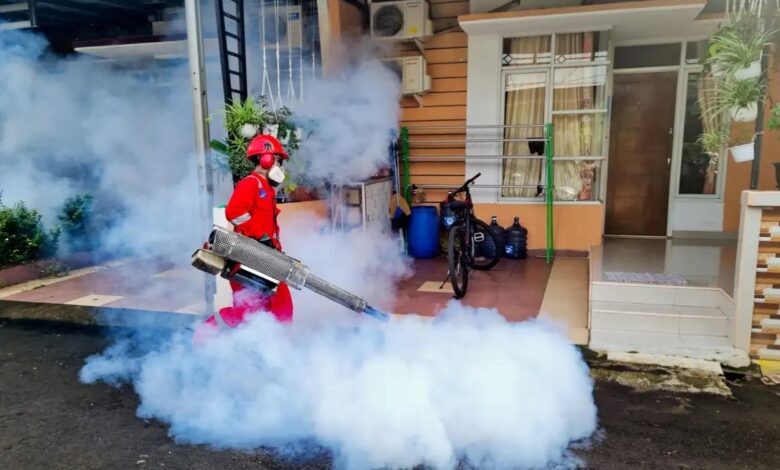Rodent Control Made Simple With These Effective Strategies

Rodent infestations can quickly turn a cozy home into a place of stress and discomfort. These unwelcome guests not only disrupt the peace but also pose significant health risks. Knowing how to efficiently control and prevent rodent infestations is crucial for homeowners. Whether you’re dealing with mice, rats, or other rodents, adopting the right strategies can help maintain a rodent-free home. This blog post explores the top 10 effective strategies for rodent control that every homeowner should consider.
Understand Common Entry Points
Rodents can enter homes through surprisingly small openings. Cracks in walls, gaps around windows and doors, and even utility lines provide easy access. Inspecting your home for potential entry points is the first step toward effective rodent control. Seal any gaps with caulk or steel wool, and ensure doors and windows close tightly. Regularly checking these areas can prevent new rodents from finding their way inside.
Blocking entry points is essential because once rodents enter, they can quickly reproduce and create a larger infestation. By addressing these vulnerabilities early, homeowners can significantly reduce the likelihood of a rodent problem. Additionally, weatherstripping doors and windows can also help keep unwanted pests out while improving energy efficiency.
Preventing rodents from entering your home is far easier than dealing with an infestation. Taking proactive measures ensures you maintain a rodent-free environment without the hassle and expense of extermination.
Maintain Cleanliness and Declutter
Rodents are attracted to food sources and cluttered areas that provide shelter. Maintaining a clean home is a fundamental strategy for rodent control. Regularly cleaning kitchen surfaces, storing food in airtight containers, and promptly disposing of garbage can minimize the attraction of rodents. Decluttering storage areas, basements, and attics reduce hiding spots, making your home less appealing to these pests.
Clutter provides rodents with ample space to nest and breed. By reducing clutter, homeowners can make it difficult for rodents to establish themselves. Implementing a regular cleaning schedule ensures potential food sources are consistently removed, diminishing the chances of attracting rodents.
Cleanliness extends beyond the interior of the home. Keeping the yard and outdoor areas free of debris and overgrowth also plays a crucial role in rodent control. A well-maintained environment, both inside and out, creates fewer opportunities for rodents to thrive.
Use Traps and Baits
Traps and baits are traditional, yet effective methods for controlling rodent populations. Various types of traps are available, including snap traps, glue traps, and live traps. Each type has its advantages and is suited for different situations. Proper placement of traps along known rodent paths increases their effectiveness.
Baiting traps with appropriate food items, such as peanut butter or cheese, can lure rodents into the traps. Once caught, it’s essential to handle the traps safely and dispose of the rodents properly. For homeowners who prefer a humane approach, live traps allow for the safe capture and release of rodents away from the home.
Combining traps with regular monitoring ensures that any rodent activity is quickly addressed. This approach helps maintain a controlled environment, preventing the infestation from escalating.
Employ Natural Deterrents
Natural deterrents offer a chemical-free approach to rodent control. Certain scents and substances are known to repel rodents effectively. Peppermint oil, for instance, is a popular natural repellent. Placing cotton balls soaked in peppermint oil around entry points and infested areas can deter rodents from entering.
Other natural deterrents include predator urine, such as fox or cat urine, which can create an environment that feels unsafe for rodents. Additionally, planting certain herbs and plants like mint and lavender around the home can act as a natural barrier against rodents.
Natural deterrents provide an eco-friendly option for rodent control, reducing the dependence on chemical-based solutions. Integrating these methods into a comprehensive rodent control strategy enhances effectiveness.
Secure Food Sources
Rodents are driven by the search for food. Securing all potential food sources is vital for preventing infestations. Ensure dry goods are stored in sealed containers, and avoid leaving pet food out overnight. Regularly cleaning up crumbs and spills eliminates accessible food for rodents.
Garbage management is another critical aspect. Using trash cans with tight-fitting lids and promptly removing garbage from the home reduces the availability of food sources. Compost bins should be rodent-proof, and outdoor grills should be cleaned regularly to prevent attracting pests.
By limiting access to food, homeowners make their homes less attractive to rodents. Consistent efforts in food storage and cleanliness play a significant role in maintaining a rodent-free environment.
Read also: The Definitive Guide to Pest Control in Chelmsford
Maintain the Yard
A well-maintained yard can prevent rodents from approaching your home. Trim overgrown vegetation and keep grass mowed to reduce hiding spots. Storing firewood and other materials at least 18 inches off the ground and away from the home can minimize the chances of rodents nesting nearby.
Removal of potential food sources from the yard, such as fallen fruit and birdseed, further discourages rodents. Sealing gaps in outdoor structures, such as sheds and garages, and ensuring proper drainage, prevents rodents from finding shelter and water sources.
Proper yard maintenance creates an inhospitable environment for rodents, reducing the likelihood of them venturing indoors. Regular inspections and maintenance tasks ensure that potential rodent habitats are promptly addressed.
Seek Professional Assistance
For severe infestations, it’s often necessary to seek professional help. Companies like Target Pest Control provide expertise and effective solutions for rodent management. They conduct thorough inspections, identify hidden entry points, and implement treatment plans.
Professional exterminators use specialized equipment and products not available to the public, ensuring a comprehensive approach to rodent control that addresses both immediate and long-term issues. Additionally, they offer valuable advice on prevention and ongoing maintenance to avoid future infestations.
Partnering with experts gives peace of mind and ensures efficient rodent control. Keeping a rodent-free home requires a mix of strategies and consistent effort. By understanding entry points, maintaining cleanliness, using traps and baits, employing natural deterrents, securing food sources, and seeking professional help when needed, homeowners can effectively manage rodent problems.





